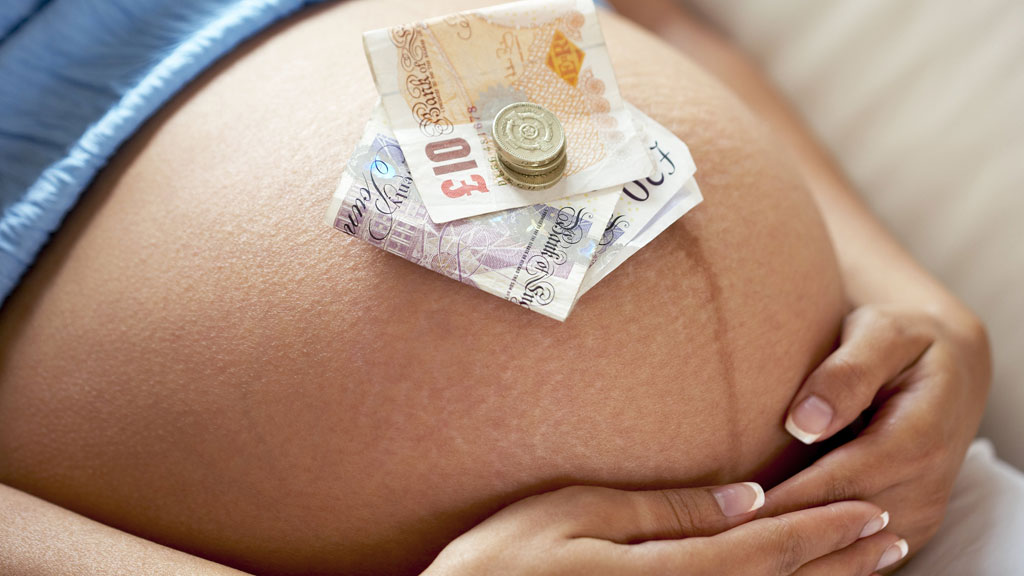Child benefit Q&A: Revenue sends out letters
As a million households receive letters this week from Revenue and Customs about changes to child benefit payments, Channel 4 News explains what is happening.

What is going on?
Revenue and Customs is sending letters to households with children in which at least one partner earns £50,000 a year or more. That is a million households in the UK, the wealthiest 15 per cent.
Why is Revenue and Customs doing this?
As part of its austerity programme of spending cuts, the coalition government has decided to means test child benefit so fewer people receive it.
The letters will tell people about the changes coming into effect in January 2013. These letters will be accompanied by a flow chart explaining what action people can take.
How much is child benefit worth?
Parents receive £20.30 a week for the first child and £13.40 for all subsequent children.
Who loses their child benefit?
Anyone receiving child benefit who earns more than £50,000 a year will lose a proportion of the benefit on a sliding scale – 1 per cent for every £100 earned over this threshold. Those earning more than £60,000 lose all of their benefit.
But there are caveats. It is “adjusted net income” that is considered, not just gross salary (see What about pension contributions? below).
Isn’t there uproar about this?
Only to an extent. Chancellor George Osborne originally proposed taking away child benefit from all 40p taxpayers (those earning about £42,000).
Anyone earning more than this would have lost all of their child benefit, but concern over this “cliff edge” scenario led to Mr Osborne modifying his plans so that only those earning more than £50,000 are hit – on a sliding scale until they earn £60,000.
Polls show there is public support for what the government is doing, but some Conservative MPs are concerned.
What are the anomalies?
Parents earning £49,000 each will keep all of their child benefit. But a couple, in which one person earns £60,000 while the other stays at home, will lose all of their benefit.
This was one of the original criticisms of Mr Osborne’s plans, but he has not been prepared to make changes.
How will child benefit be withdrawn?
Another issue, that has come to light in recent days, is the way child benefit is withdrawn.
Parents earning more than £50,000 have a choice: they can continue to receive all of their child benefit, but will have to fill in a self-assessment form, which will see money clawed back through the tax system.
Revenue and Customs says that for those earning less than £60,000, “the tax charge will always be less than the amount of child benefit”.
Or they can tell Revenue and Customs they no longer want to receive the payment, in which case self-assessment will not come into play.
It has been reported that parents who stay at home to look after their children could be caught out by this change. This is because, at the moment, stay-at-home parents receive national insurance credits, as long as they are entitled to child benefit, and these credits count towards their state pension.
But Revenue and Customs told Channel 4 News that it was entitlement to child benefit that guaranteed national insurance credits, not the receipt of child benefit. As such, stay-at-home parents had nothing to fear.
But half a million people who have never filled in self-assessment forms before will now have to do so if they want to continue to receive child benefit.
They have to register by October 2013 or may have to pay a penalty if they fail to do so.
What about pension contributions?
Before sending out its letters, Revenue and Customs has considered people’s “adjusted net income”, rather than gross salary.
Pension contributions are deducted before “adjusted net income” is calculated. For example, someone earning £55,000, who is making pension contributions of £500 a month (£6,000 a year), should not receive a letter because their “adjusted net income” is just below £50,000.
Some people may also decide to pay more into their pension schemes to reduce their “adjusted net income” and thus qualify for child benefit. This is entirely legal.